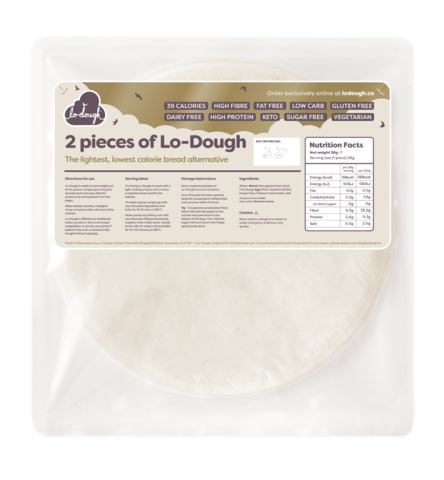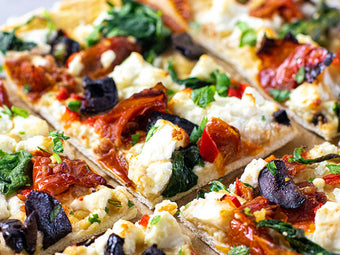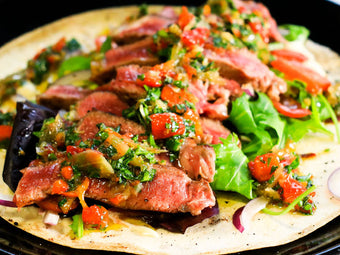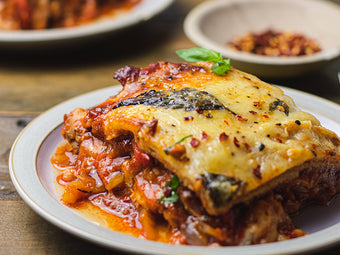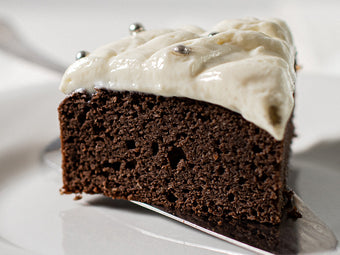Is it Time to End our Love Affair with Carbs?
Let’s face it, we’re a bit in love with refined carbs. While we’ve got that fuzzy feeling in the stomach for fresh baked tiger bread or a big bowl of spaghetti, it might be time to admit that this is a one-sided relationship. Are they causing us more harm than good? Do we need to "break up" with carbohydrates?
There's one thing that we can be sure about - and that’s that carbs are satisfying. Despite the fact they’ve been demonised in the media for their connection to obesity, heart problems and type 2 diabetes, carbs (especially those refined carbs) are embedded into our all time favourite comfort foods, and we just can't help but drop them into the shopping basket after a long day at work. A meal based around rice, pasta, potatoes or bread is a lot easier to put together than a specific meal plan that you found in a healthy book. We don't need to wonder what wins on that tired, Wednesday night shop.
It's not you, it's me
Perhaps we are pointing the finger at carbs undeservingly. Are we just under educated? There are "good carbs" out there after all, suggesting we shouldn't tie them all with the same brush.
Dietitian Sian Porter says (on the NHS website): "Carbohydrates are such a broad category and people need to know that not all carbs are the same and it is the type, quality and quantity of carbohydrate in our diet that is important.
"While we should reduce the amount of sugar in our diet, particularly added sugars, we should base our meals on starchy carbs, particularly the less processed wholegrain varieties.
"There is strong evidence that fibre, found in wholegrain versions of starchy carbs for example, is good for our health.”
Official websites like the NHS are a good source of information, rather than random blogs you come across from all corners of the cyber world. When you to embark on a quest for better knowledge, it's so easy to get lost in an enormous maze of conflicting information which can lead to more confusion than when you started.
Good and bad carbs - the facts
Carbohydrates are one of three macro nutrients (major nutrients that create the biggest part of our diet) found in food – the others being fat and protein.
- Sugars: Put simply, these are molecules of sugars such as glucose, fructose (fruit sugar), and galactose, which are known as monosaccharides. When two of these molecules join together, they are called as disaccharides. Table sugar is a perfect example of this type of carb.
- Starches: Starches are known as "complex carbohydrates." They are composed of long chains of glucose. Your body breaks down starches into glucose. So be careful tucking into that fluffy white bread, as it can most certainly contribute to bloating and weight gain.
- Fibre : Yes, fibre is a carbohydrate. A "good carb" that you will find in plant-based foods such as grains, fruit, vegetables, nuts, and legumes. It cannot be broken down for energy use in the body and includes both soluble and insoluble fibres.
- Oligosaccharides: Feel free to try and pronounce it. This fourth category of carbohydrates falls between sugars and starches. Oligosaccharides are a fermentable combination of simple sugars that have positive effects in our colons and are considered prebiotics.
Benefits of a low carb diet
With 63% of UK adults now considered overweight or obese, and 3.5m suffering from diabetes, it’s no wonder the we are changing our relationship with eating. A rising number of people have been opting for a low-carb diet, or a ketogenic diet, which, reports say, have the potential to reverse the symptoms of type two diabetes.
Going low carb, or even starting a ketogenic diet, can bring about significant changes to your health. A low carb diet tends to mean avoiding sugar and starchy foods such as bread, pasta, rice, beans and potatoes.
Carbs that will love you back
So we've established white carbs are the biggest culprit for knock on health effects and weight gain. But there are some carbs you can stay in a healthy relationship with, including:
- Vegetables: All of them! Yes, peppers have carbs, but you're much better enjoying a veggie stir fry than a bowl of white pasta.
- Whole fruits: Bananas, strawberries, apples and so on. They all contain natural sugars which are better for you than stodgy white carbs.
- Legumes: Lentils, kidney beans, peas.
- Nuts: Almonds, walnuts, hazelnuts, macadamia nuts, peanuts.
- Seeds: Chia seeds, pumpkin seeds.
- Whole grains: brown rice, oats, quinoa and so on. Make sure you are choosing grains that are really whole.
Still love bread?
Well ok, so do we. But there's a way you can still enjoy your favourite food (pizza, pies, desserts) without the white carbs, and that's by using Lo-Dough as your bread and pastry alternative.
Lo-Dough is a virtually carb free alternative, which supports a keto diet, a low carb diet, and frankly any diet with an objective of improving your health or losing weight.
One piece of Lo-Dough, which is one whole pizza base, one wrap, one entire pasty or pie - just over two grams of carbs. If you are eating a low-carb diet, the freedom Lo-Dough brings is outstanding. It most certainly helps that Lo-Dough is high in fibre and protein, as well as being sugar free, vegetarian, gluten free and only 39 calories per piece. It is quickly becoming the bread and pastry alternative of choice for people who are slimming, watching the carbs, or following specific diets such as paleo or keto.

